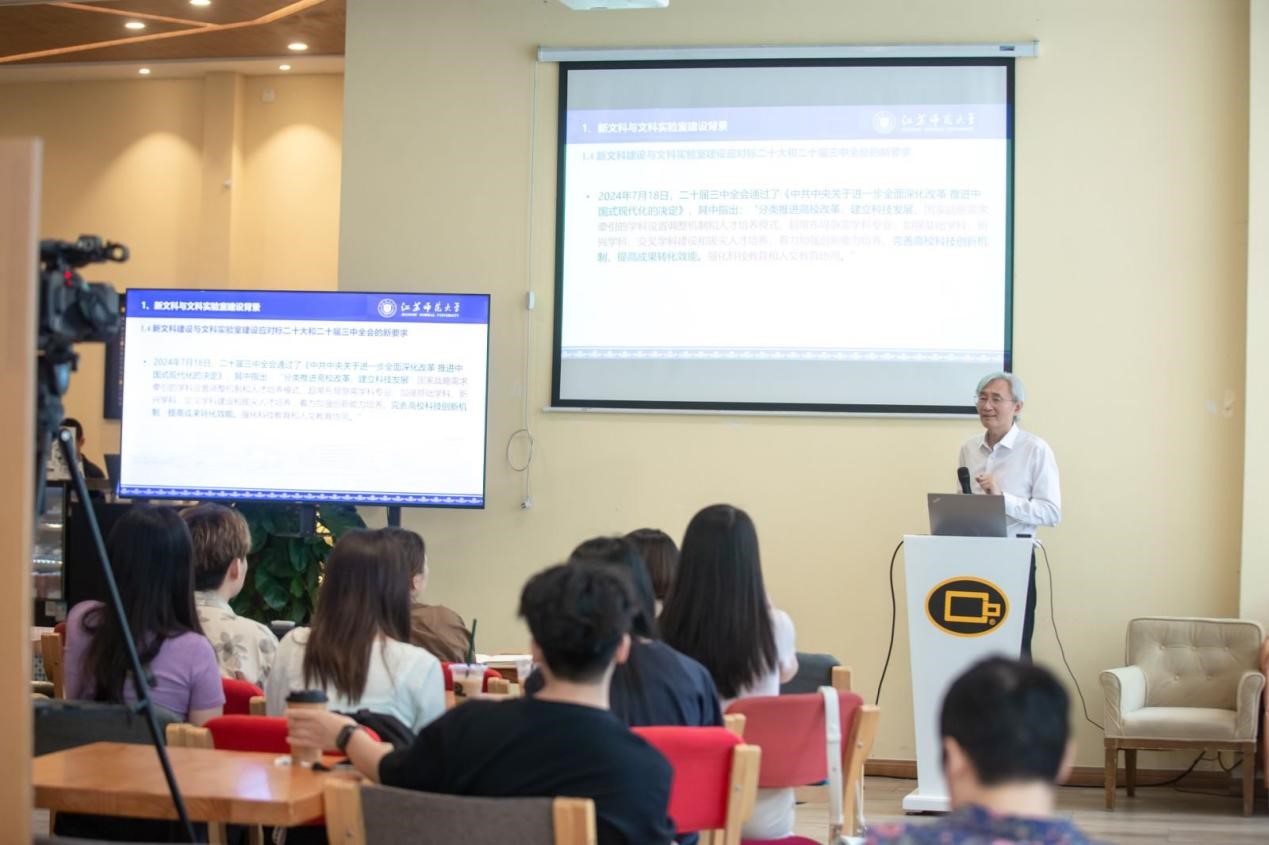On May 25, the Advanced Institute of Humanities and Social Sciences (AI-HSS) hosted the sixth “Humanities × Technology” Thinkers’ Forum. This forum, titled Contextual Drivers, Trajectory Analysis, and Reform Practices of New Liberal Arts Construction, featured Professor Yang Yiming as the keynote speaker. Professor Yang is a pioneer and a National Leading Talent in the field of neurolinguistics in China, a national-level teaching master, and Chief Scientist of Jiangsu Province (first-rank talent of Jiangsu’s “333 Talent Project”),. Professor Zeng Yong, Dean of AI-HSS and Academician of the International Eurasian Academy of Sciences (IEAS), and leadership of the School of Foreign Languages (SFL) attended the forum. The forum was moderated by Professor Hu Jiehui, Dean of SFL.

Professor Hu extended a warm welcome and gratitude to Professor Yang for addressing the forum, and introduced his research experience as well as the background and theme of the forum.
Professor Yang, combining cutting-edge research achievements in linguistics, neuroscience, artificial intelligence and other fields, carried out in-depth explanations on the background and strategic significance of new liberal arts construction, the construction requirements and realization paths of liberal arts laboratories, and the core role of linguistics in interdisciplinary integration. He emphasized that digital humanities, problem-led and mixed improvement paths are the three key paths for the construction of new liberal arts; the construction of new liberal arts needs to carry out adaptive and exploratory research in the non-comfort zone to produce original achievements that cannot be solved by the original model. Professor Yang also cited cases of literature and literature integration (cognitive neural mechanisms of rhyming in Chinese poetry), literature and medicine integration (competition and inhibition effects between language systems of bilinguals), and literature and engineering integration (supporting role of linguistic theories in the construction of large language models), demonstrating the innovative practice and important value of interdisciplinary integration in the construction of new liberal arts.
Professor Yang stressed that facing the future, the development of new liberal arts must adhere to problem orientation, closely focus on the major strategic needs of the country, accelerate the construction of an academic system with Chinese characteristics, and effectively serve the process of Chinese-style modernization; at the same time, it is necessary to grasp the pulse of the times, deeply promote the construction of digital Chinese, and strive to be at the forefront of the development of humanities and social sciences in the new era.
This forum has built a high-quality academic exchange platform for the construction of new liberal arts and interdisciplinary research in linguistics, which not only helps faculty and students to deeply understand the cutting-edge dynamics and development trends of the industry, but also provides new ideas and directions for theoretical research and practical exploration in related fields.